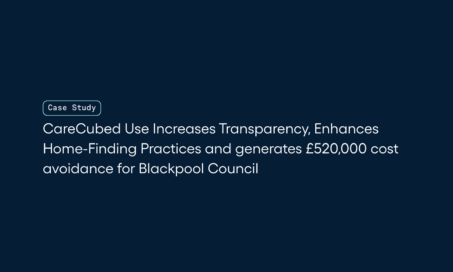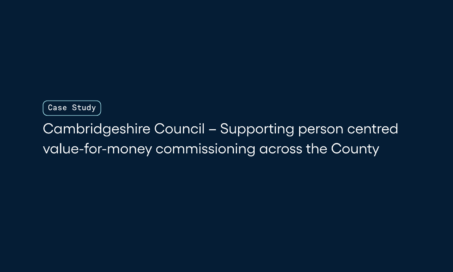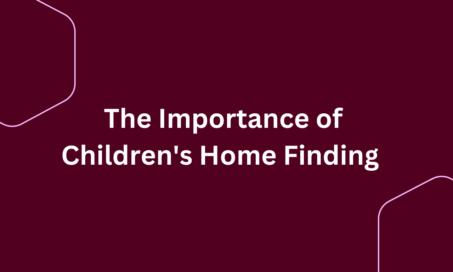
The Challenge
- Demonstrating a robust and fair methodology for how residential care fees have been calculated
- Showing compliance with the Care Quality Commission (CQC) standards around person-centred care
- Protecting revenue from being squeezed down to enable the charity to keep providing quality person-centred care
The Solution
- Rolling out CareCubed to all 12 residential homes following a successful trial period
- Using CareCubed to show evidence-based costings based on individual assessments
- Using CareCubed to give transparency around costs and aid negotiation with funders (typically local authorities)
Results
- The charity was able to negotiate fairer fees generating increased income for just 19 placements using CareCubed. It is now rolling it out to all 12 residential properties within the charity’s portfolio
- CareCubed has given the charity added confidence when agreeing fees with new commissioners, helping it diversify to out-of-area clients to spread the funding risk
- CareCubed has allowed the charity to engage in positive, strategic conversations with local authorities
Together for Mental Wellbeing is a national charity which provides a range of services to meet the needs of people with mental health issues, including providing residential care in 12 homes across the UK where service users are supported practically and emotionally.
The charity has been using CareCubed since 2018 when Richard Broad was appointed as its Operations & Development Manager. Having used CareCubed’s predecessor, the Care Funding Calculator (CFC) whilst working as a project manager for the organisation, Broad believed it could benefit the charity in its negotiations with the local authorities which fund the majority of placements.
CareCubed is a secure online tool which allows users to input data about a care placement, such as the level of one-to-one care required and other needs, as well as the positive outcomes being delivered to the individual. The tool generates a guide price based on annually updated data to help bring transparency to discussions between care commissioners (local authorities and Clinical Commissioning Groups) and providers. It can be used by both parties and is already used by more than a third of local authorities and 30 providers.
CareCubed has already helped Together for Mental Wellbeing justify its fees across 19 placements, leading to extra income to help its service users. CareCubed has now been rolled out more widely to all 12 of its homes.
“I saw that we had a challenge in calculating our fees and that was a real problem,” explained Broad, “As we moved from block to spot contracts, we needed to be able to demonstrate a robust and fair approach to our fee structures and to ensure that we were working collaboratively with the funder. Now we can have an open and transparent discussion about costs, and they are accepting the core values of it.”
“CareCubed gives confidence in the fee being proposed, the rationale and context – that the fee has been accurately considered and is based on accurate, up-to-date data.”
Richard Broad,
Operations & Development Manager, Together for Mental Wellbeing
Recently, for example, the charity was able to use the CareCubed tool to highlight a discrepancy between the hourly rates that both the charity and one local authority had been basing fee negotiations around. Together for Mental Wellbeing pays staff the rate set by the Living Wage Foundation and, whilst the local authority’s procurement strategy said it supported companies paying the Living Wage, its calculations were based on the lower National Minimum Wage.
Broad said the tool was also helpful when working with new commissioning teams as the charity has sought to diversify the opportunities for service users in its homes to people out-of-area, ensuring that no home is overly reliant on funding for places through one local authority. “As a provider we need to manage our risks so that we can continue to provide high quality services to all service users,”
Broad added, “When you are working with a commissioning team you have never worked with before CareCubed gives confidence in the fee being proposed, the rationale and context – that the fee has been accurately considered and is based on accurate, up-to-date data.”
Anna Riviello is a Project Manager at Together for Mental Wellbeing and has been using the tool for placements in one of the organisation’s 12 homes, Kirtling House Accommodation Service. She explained that each home has its own template for costings set within CareCubed, which includes any services offered as standard, such as weekly cooking classes and administering medication. A recent CareCubed update around mental health, including Section 117 placements, has increased its user-friendliness further, with Riviello now able to complete inputting an assessment in around ten minutes.
“We can now capture the specific mental health needs and recovery goals which has saved us lots of time and allows us to very quickly collect clear, person-centred information which can be easily updated. We can now input risks around self-harm, for example, and other things that are a lot more applicable to our service can just be selected from a dropdown menu,” she explains.
Riviello believes the tool is especially useful for showing the service meets Care Quality Commission (CQC) compliance: “It allows us to demonstrate and evidence that we are focused on delivering outcomes for the individual and offering person-centred recovery services at a fair price. It emphasises the importance to us of personalised care and because the fee is varied by user it shows we are truly person-centred.”
The placement costings done using CareCubed are widely accepted because of the product’s reputation across the board. “Our staff work through the details of the assessment with the commissioner meaning there is shared understanding and ownership. The commissioner is comfortable the placements are fully understood, and a fair price is being paid for the quality services we deliver. Previously we used a standard flat fee, and it was much more difficult to evidence the rationale for the fee structure,” she explained.
Both Riviello and Broad have been pleased with the level of service and assistance given by iESE and would recommend CareCubed. “I would like to see all local authorities using CareCubed,” added Broad, “I would also strongly encourage other providers to use the tool because it puts you in a much stronger negotiating position.”
“It allows us to demonstrate and evidence that we are focused on
delivering outcomes for the individual and offering person centred recovery services at a fair price.”
Anna Riviello, Project Manager,
Together for Mental Wellbeing











